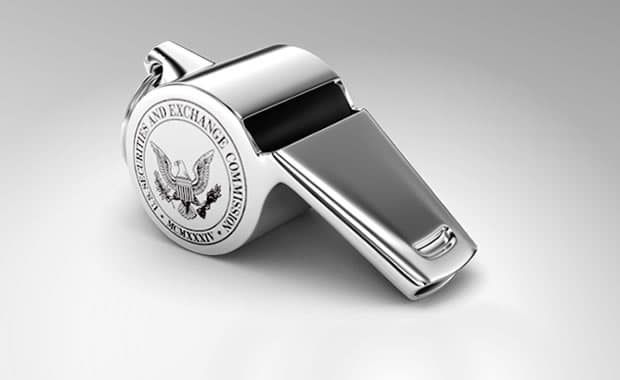Securities and Exchange Commission
In announcing its first two whistleblower awards of the year, the Securities and Exchange Commission notes:
As set forth in the Dodd-Frank Act, the SEC protects the confidentiality of whistleblowers and does not disclose information that could reveal a whistleblower’s identity.
In one case, a whistleblower alerted the agency to a fraudulent scheme and received a share of the recovery — $277,000. In another case, an investor alerted the SEC. That person was awarded $45,000.
The SEC also notes: All payments are made out of an investor protection fund established by Congress that is financed entirely through monetary sanctions paid to the SEC by securities law violation.
We await action on proposed changes to the SEC whistleblower law that could hurt whistleblowers.
Nigeria
Worldwide, whistleblowers have much less protection than they do in the U.S. Nigeria, for example, did poorly on this week’s Corruption Perception survey, scoring a 26 out of 100. A new video from an ongoing anti-corruption effort tells the stories of several Nigerian whistleblowers.
The good news from that part of the world is that African whistleblowers were key sources for a major expose published this week. A series of stories raise questions about the business practices of the wealthy daughter of a long-serving Angolan president.
Department of Defense
Back here in the U.S., whistleblowers have more protection. But whistleblowing is rarely easy or simple. Iowa Sen. Chuck Grassley has asked the Department of Defense to ensure that its contract oversight staff members are not too tight with the companies they are monitoring. He was approached by a group of whistleblowers who work at Lockheed Martin on the C-130J troop transport plane. They say Lockheed has been using unsafe methods to apply a chemical used for sealing the C-130J’s fuel tank.
According to whistleblowers, when spraying this chemical on the plane, so many particles would end up floating in the air that a “large blue cloud” would form inside of the facility. Employees both spraying the plane and in other parts of the facility would be exposed to, and inhaling what amounts to industrial strength airplane glue. Despite the obvious safety hazard, DOD’s COR presumably failed to ask elementary questions regarding possible health concerns, or review basic documents involved with the proper use and handling of hazardous chemicals.
Whistleblowers told Grassley that Lockheed ignored health concerns. DOD begins to investigate these claims but stopped when Lockheed said they wouldn’t do it anymore, according to the letter. Grassley asked DOD to ensure that it is “providing rigorous oversight of these contracts.”
More from Defense News, which reports Lockheed Martin declined to comment.
